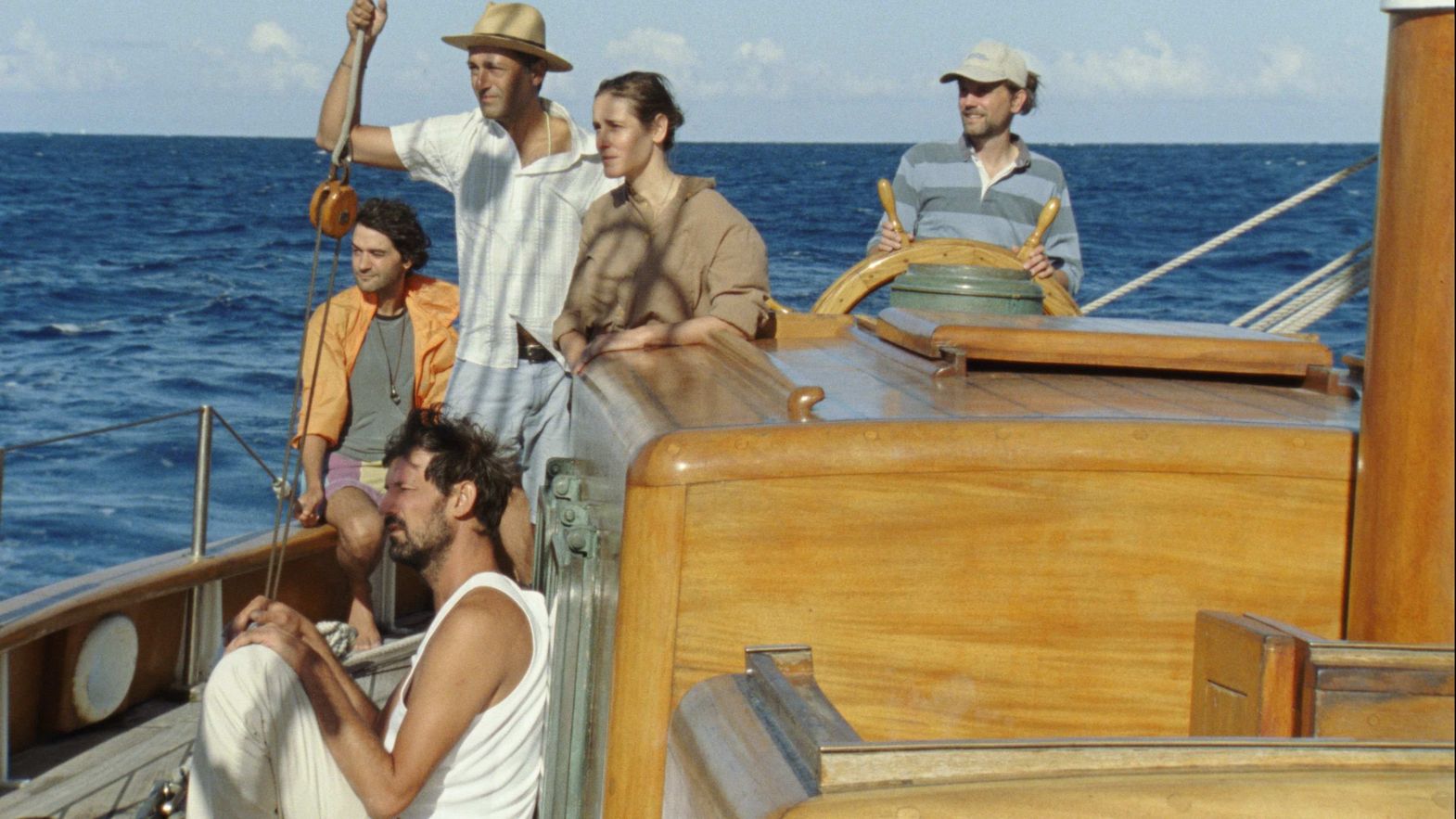 ©Fünferfilm - Shellac
©Fünferfilm - Shellac
After the impressive presentation of her first feature film Drift (2017), the sea and its mysterious surfaces emerge once again as the main characters of Helena Wittman's new film, Human Flowers of Flesh. As its indecipherable yet fascinating title announces, this surprising shape-shifting sea odyssey shot on 35mm film coexists with a series of mysteries threatening us from the very beginning.
As absorbing as it is contemplative, the opening scene of Human Flowers of Flesh follows a bunch of trekkers, a woman and four men, walking silently through the mown rocks of the Mediterranean. The distinctive sounds of the sea surround them, and we are then invited to embark on a marine journey.
Like a sort of speechless Captain Ahab, Ida - impressively portrayed by Angeliki Papoulia, remembered for Lanthimos' Canine or The Lobster - leads this ghost crew adrift on in the Mediterranean, a group of silent men from different backgrounds who only seem to find refuge in the tales of a modern-day Aoidos, who eloquently amuses them with mythological fables as they sail.
It is through a series of discoveries and revelations that this woman trapped in a man's world will learn about the French Foreign Legion, a military corps integrated by soldiers from all over the world, initially designed for outlaws in search of redemption. Seized by irrational fascination, Ida and her men set out for Algeria in pursuit of one of the most emblematic military bases of the golden age of French colonialism.
This quest triggers one of the main themes around which this radical maritime epic orbits; the mystery and its relation with human desire. It is the futile impossibility of reconnecting the body with the soul that awakens some of the tensions that take place over the course of it. Actually, what Ida is really looking for is to reconcile herself with a form of desire.
Ida, a woman who does not speak and about whom we know practically nothing, becomes our only spiritual guide on this dreamlike journey. The rest of the crew moves and speaks erratically, human beings who live their lives in a dormant state. Their via crucis is spiced up by a suggestive sound map that carries their lethargy through the oceans of the oneiric. Like an ASMR clip on loop, the sea seems to be constantly present in their thoughts and dreams. Simultaneously, in the depths of the sea, a very different film seems to be playing. We will only dive once, to observe the fossils in which the horrors of the past are housed.
Eventually, this powerful tension finds solid ground. Through the final stages, an explosive catharsis takes the form of an encounter with a character who is as mysterious as he is charismatic. The moment Ida finally arrives at her destination, the film is conquered by a cinephile outburst. Denis Lavant enters into the picture performing an apocryphal - or aged - version of the same character he played in Claire Denis's masterpiece Beau Travail, a film with which Human Flowers of Flesh resonates deeply. At the end, it seems that Wittmann, in an organic and at the same time captivating gesture, decides to reconcile herself with her cinematographic legacies and also, her desires.
Manel Domínguez (Critics Academy)